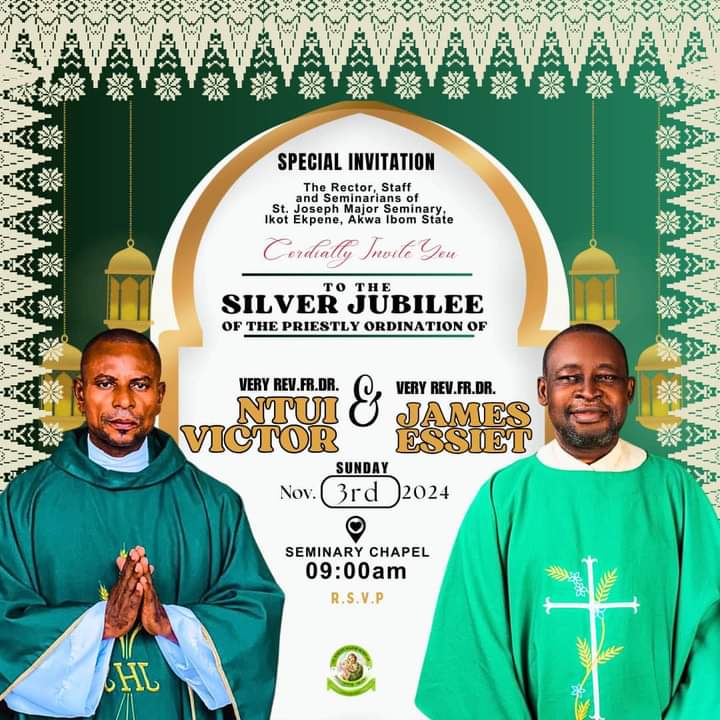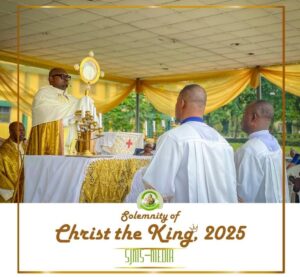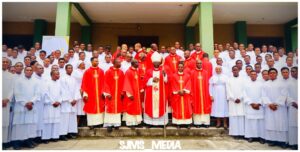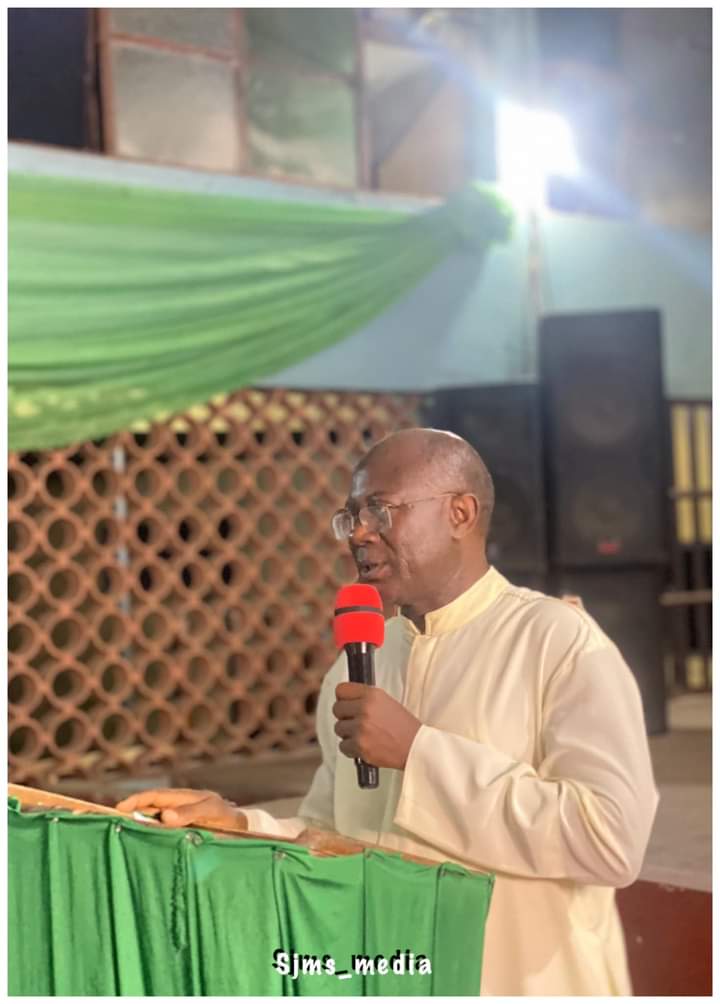
Homily at the Silver Jubilee of James Essiet and Victor Ntui at St. Joseph Major Seminary Ikot Ekpene on Sunday 3rd November 2024My dear brothers and sisters, on this 31st Sunday (year b) – 3rd November 2024, we are adding an extra colour to our Sunday Liturgy by fusing into it the 25th anniversary of the priestly ordination of our two brothers Fr. James Essiet and Fr. Victor Ntui. 25th anniversary is usually called “Silver Jubilee.” The word jubilee draws from the Hebrew word Yobel which means rams horn. One would be curious to ask why rams horn? Of what use is the rams horn in jubilee? The Rams horn was used in biblical times, for proclamations or summoning people together.
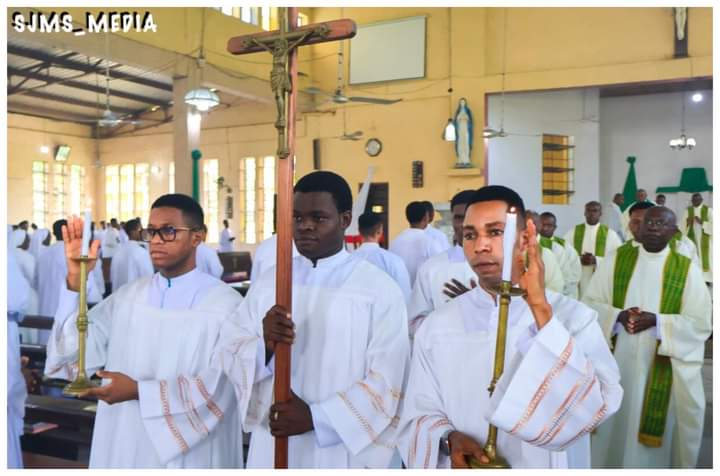
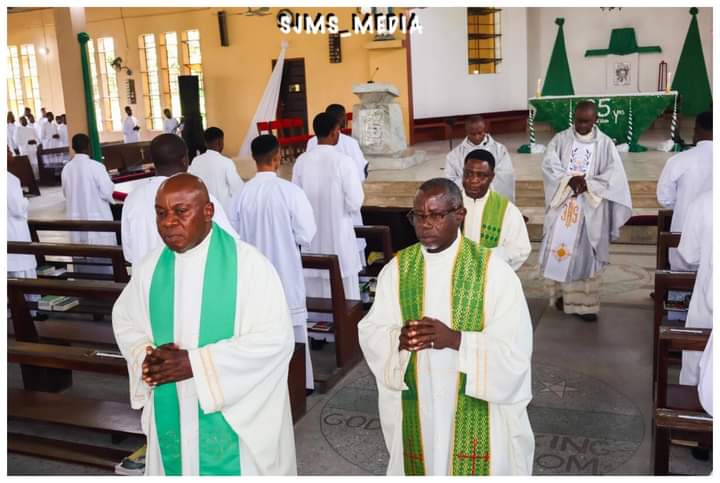
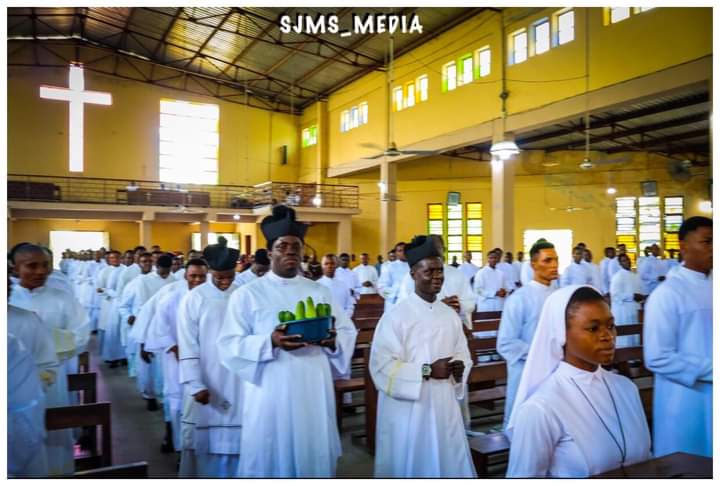
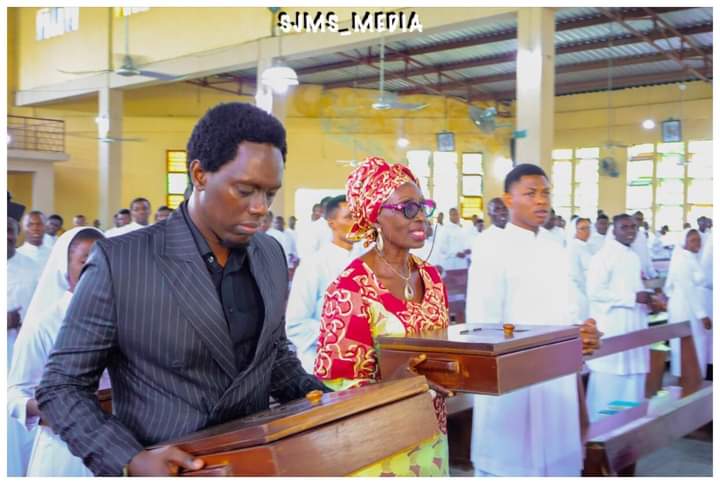
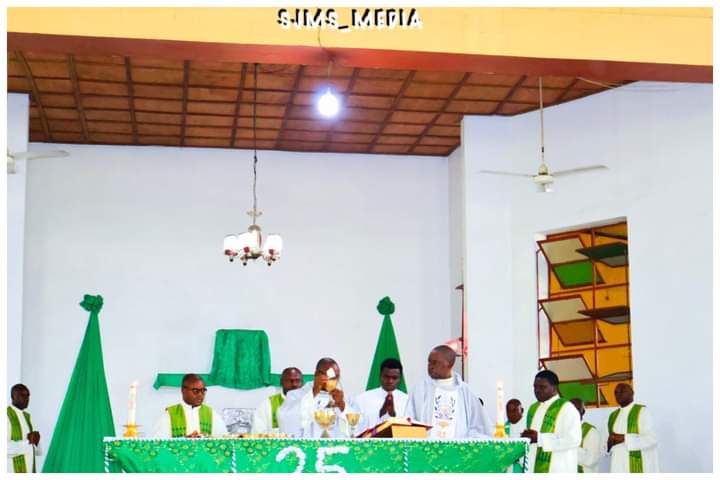
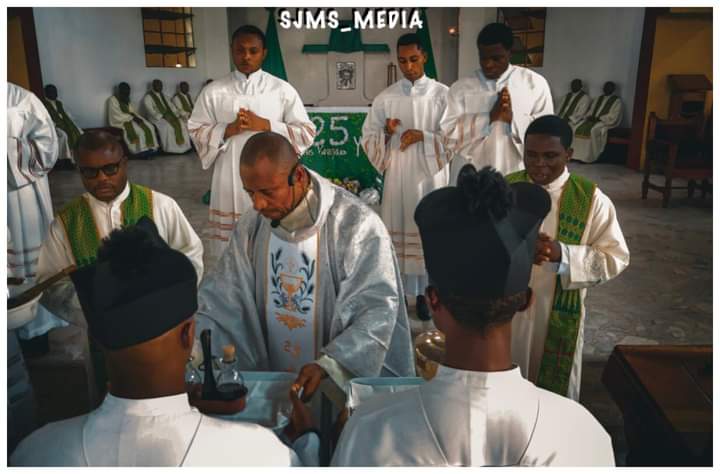
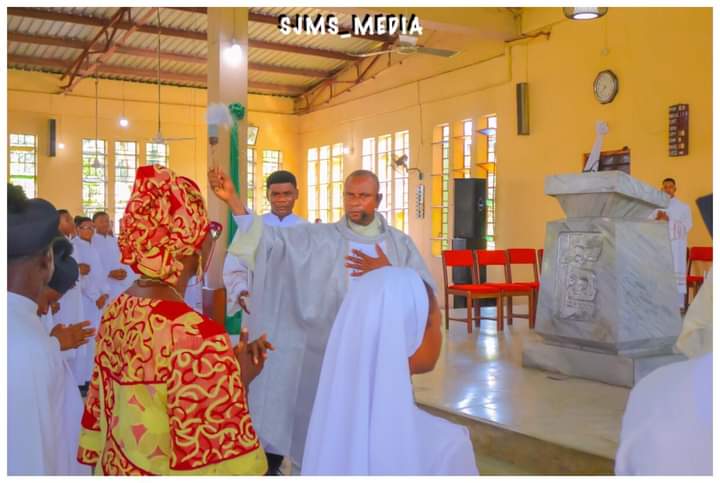
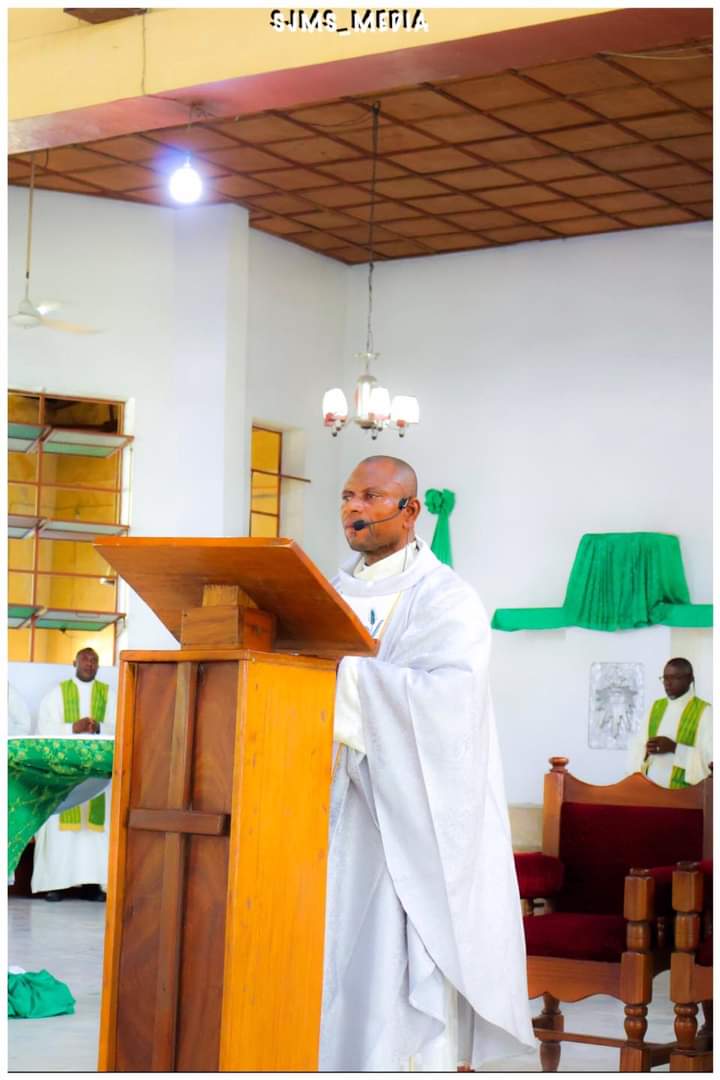
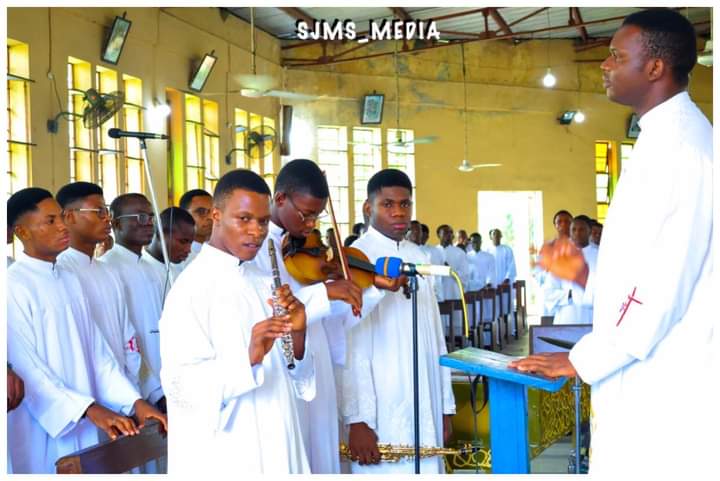
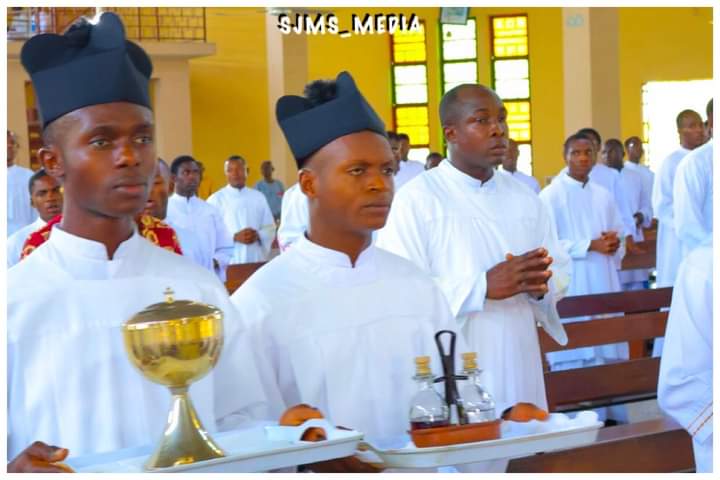
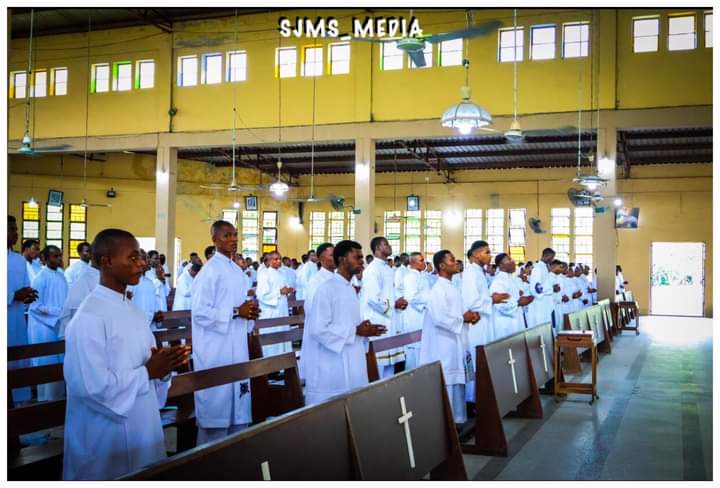


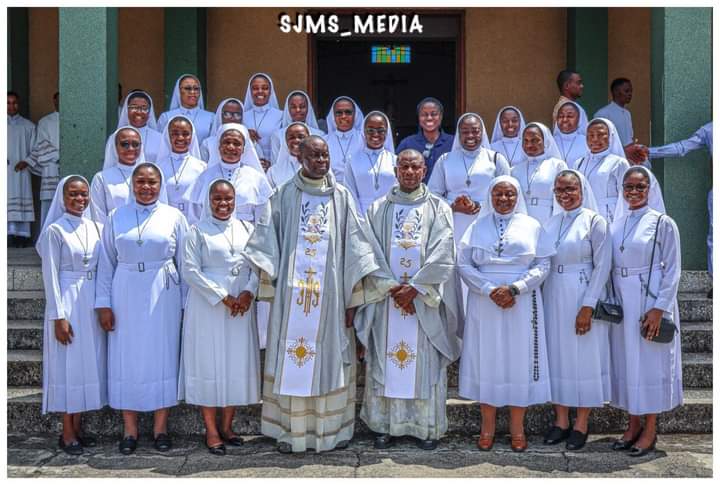
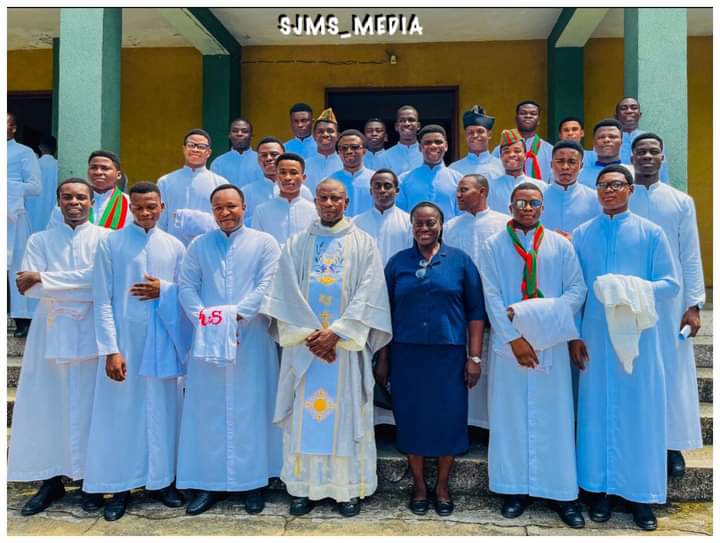
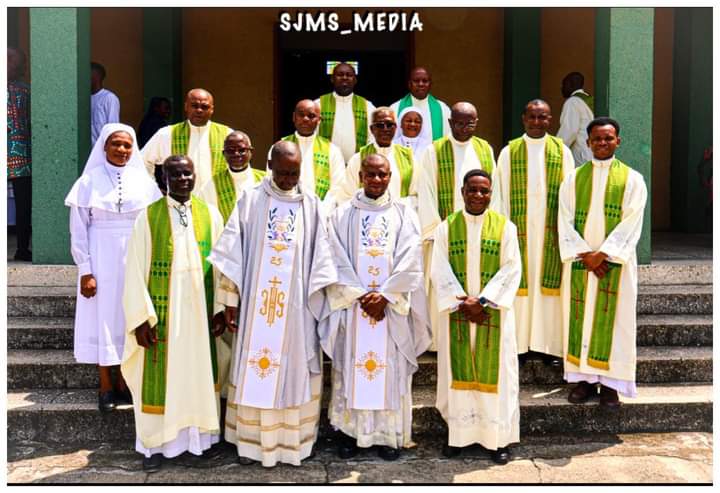
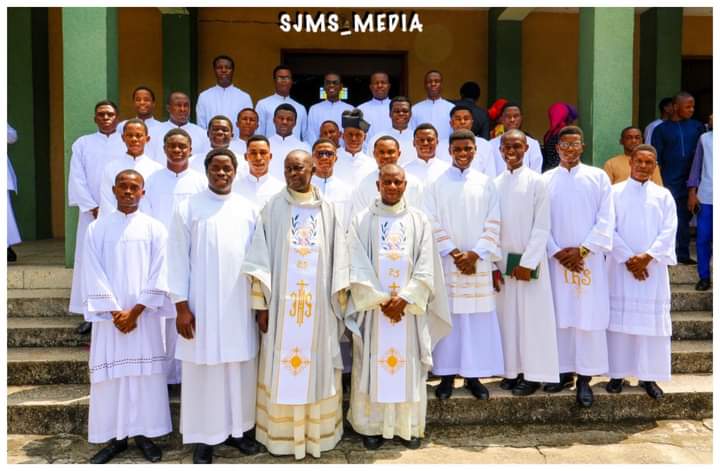

In our time, this yobel could be called trumpet. Why trumpet or Rams horn? What is being proclaimed? Why sound the trumpet? The answer is that God directed Moses to sound the trumpet and proclaim a special year a year of atonement, a year of liberation and above all a year of grace. It is therefore the content of what is proclaimed that has given meaning to the Latin word Jubilare to shout for joy. Hence the understanding of jubilee expands from the instrument of announcement to the content of the announcement. And on the tenth day of the seventh day of the seventh month you will sound the trumpet; on the day of Expiation you will sound the trumpet throughout the land. You will declare this fiftieth year to be sacred and proclaim the liberation of the countrys inhabitants. You will keep this as a jubilee. (Lev 25: 9-10).

He was student priest at the Ebonyi State University for his post graduate and doctoral studies in Philosophy. Since 2018 he has been serving as registrar and formator here at the St. Joseph Major seminary Ikot Ekpene. Dear brothers James and Victor, you have shared your life and stories with us. Both of you have brought joy to our hearts through a variety of ways: through your art of speech that deflects tension, your humour and jokes. The King of the young and our oga and chairman. You correspond clearly to the attributes which Jesus recommended to his followers: gentle as dove but wise as a serpent. You remain calm but talk tough when you should. Through your activities and assignments, you have helped to heal hearts and souls, inspire knowledge and bring joy to this community. We your brothers and sons (the seminarians) are happy that you are among us. Thank you for your work among us. Thank you for the joy and upliftment you bring. Thank you for your comradeship and mentorship. Thank you for bearing the cross of seminary apostolate. On another note, we thank the family of Fr. James Essiet for the care they have shown to Fr. James so far.

In order to properly appreciate what jubilee means, we need to distinguish it from “Jubilation.” Both jubilee and jubilation draw from the Latin jubilare (to rejoice). In jubilation, the rejoicing concentrates on our achievements. In other words, in jubilation, we celebrate our accomplishments and great deeds. These could be both good achievements or bad ones (sinful joy). The man who had a huge harvest in the Bible (Luke 12:16-21) There could be jubilation for good and or evil. On the other hand, jubilee is focused on the great things God has done for us and through us. The trumpet-blowing on jubilee is not blowing our own trumpet of self-exaltation or self-praise but blowing the trumpet of “the marvels the Lord has done for us.”It is because jubilee celebrates the mercy and graciousness of God in our lives that the biblical jubilee requires debts to be forgiven, slaves to be released, and the permission for poor people to enter farmlands and collect food. The people were meant to experience profound joy and relief from burdens. This shares the same affinity with Isaiah 61: 1-2f: The Spirit of the Lord is on upon me, for he has anointed me. He has sent me to bring good news to the afflicted, to comfort the broken hearted, to proclaim liberty to captives, release to those in prison, to proclaim a year of favour from the Lord.” Another glimpse of jubilee is seen in the book of Prophet Nehemiah: “Then His Excellency Nehemiah and the priest-Scribe Ezra and the Levites who were instructing the people said to the people, ‘Today is sacred to Yahweh your God. Do not be mournful, do not weep.’… He then said, ‘You may go; eat what is rich, drink what is sweet and send a helping to the man who has nothing prepared. For today is sacred to the Lord. Do not be sad: the joy of the Lord is your strength.” (Neh 8: 9-10).

Jubilee is therefore, not any type of rejoicing. It is more particularly, rejoicing in God and the overflowing of the joy that God has been gracious to us. This therefore, imposes an obligation on us to show this same graciousness to others. The servant who refused to forgive the debt of his fellow servant can be a good illustration here. The master said to him: “you evil servant, I forgave you your debts, could you not have forgiven your fellow servant.”Although Leviticus places this year of rejoicing and the blowing of trumpet at each fiftieth year, we have in our time, carved half of the fifty as worthy of partaking in the qualification of jubilee hence the celebration of the twenty fifth year as Silver Jubilee.In our case today, we rejoice not because of any great achievement on our part. We rejoice with our brothers not because of any spectacular achievements or any superhuman accomplishments. We do not rejoice for their special intelligence, degrees, world travels or height. We simply rejoice and proclaim this year of joy for them because the grace of God rests on them. This is my beloved son my favour rests on him. (Mt 3:17). We rejoice today with our brothers for the many graces and gifts of God which are manifest in them and in their lives. We rejoice that God has sustained them with his blessings.

The work of a priest can be summarised as a constant proclamation of the jubilee as seen in the ministry of Prophet Isaiah (Is 61: 1-2f) to proclaim joy to Gods people, to give them back hope and declare their release from the different chains of oppression and humiliation. Today’s gospel mandates the priest not only to preach but above all to love God and human beings “with all his heart, with all his soul and with all his strength. You know our template of interpreting love: to see, to feel and to act. So that through his life of deep love, he can draw people to love God deeply and to love one another – thus making the world a garden of love. The second reading emphasises this jubilee dimension of a priest’s ministry through saving “those who approach God through him, since he lives to make intercession for them.” The priest is to bring back joy to people through healing in words, actions and prayers. He brings joy, relief and consolation when he visits the sick and reconciles man with God through his absolution at the confessional. (God the father of mercy has reconciled the world to himself and has sent the Holy Spirit for the forgiveness of sins. Through the ministry of the Church, may God grant you pardon and peace. I absolve you, in the name of the Father and of the son and of the Holy Spirit). That is why the Catechism of the Catholic Church groups the sacraments of reconciliation and visiting the sick as sacraments of healing.

Furthermore, the priest heals when he lays his hands on the sick (Mk 16: 18) The priest heals when he restores joy to the broken hearted (Is 61:1) and makes intercession for them. A guide to this is the image of the eternal priest – Melchizedek (who is mentioned 3 times in the Bible)Beyond the person of Melchizedek, the meaning of his name is very important. Melchizedek is a compound word from 2 Hebrew words: Melech and Sedek (Sadiq in Arabic), meaning king of righteousness. In my own interpretation, I say that the priest who is like Melchizedek is one whose Melech is in his sedek – his power and authority is shown in his righteousness. Gen 14: 18-20 also describes him as King of Salem (king of peace). This is what the second reading highlights as the difference between the Levitical priests and the priesthood of Jesus, who is “holy, innocent, undefiled, separated from sinners.” These are the virtues that endures forever. These are the characters of the Kingdom of God as St. Paul would remind us: “the kingdom of God is not eating and drinking but righteousness and peace in the Holy Spirit.” (Rom 14: 17). These are precisely the hallmarks of the new priesthood which the second reading says “has been made perfect forever.” Since their priestly ordinations 25 years ago, our brothers have served in various places and through their assignments brought joy to Gods people. Fr James Essiet has worked as Assistant Cathedral Administrator, assistant parish priest in his diocese, Ikot Ekpene, Student Priest in CIWA(where he earned his Master’s degree in Theology, Licentiate and Doctorate with specialisation is Sacred Liturgy), General Secretary of CAN Akwa Ibom State. He has been serving for many years now as a formator here at the St. Joseph Major Seminary Ikot Ekpene. Fr. Ntui had worked as assistant parish priest in his diocese, formator at the diocesan junior seminary (dean of studies, dean of discipline and rector respectively) and a pioneer parish priest, director of the diocesan spiritual year seminary and parish priest in different parishes in his diocese. It is worthy of note that he is so far the second priest in Ogoja diocese who has had this rare privilege to be rector of both junior seminary and spiritual year at different times.

“O Jesus our great High Priest, hear my humble prayers on behalf of your priests Victor Nui and James Essiet. Give them a deep faith, a bright and firm hope and a burning love which will ever increase in the course of their priestly lives.In their loneliness, comfort them in their sorrows, strengthen them in their frustrations, point to them that it is through suffering that the soul is purified, and show them that they are needed by souls and needed in the work of redemption.O loving Mother Mary, Mother of priests, take to your heart your sons (the two priests) who are close to you because of their priestly ordination, and because of the power which they have received to carry on the work of Christ in a world which needs them so much.Be their comfort, be their joy, be their strength and especially help them to live and to defend the ideals of consecrated celibacy. Amen.
Hymn: Tu es Sacerdos in aeternum secundum ordinem MelchisedechJuravit Dominus et non poenitebit eumOra pro nobis ora pro nobis Deum

